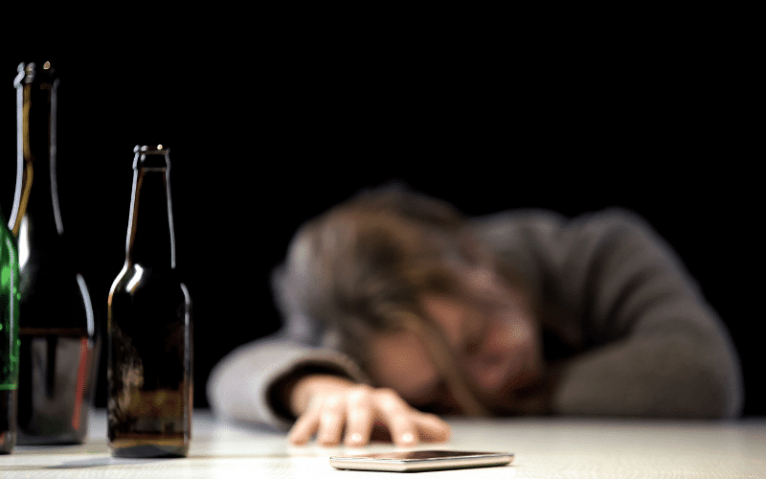Alcohol poisoning can be a serious, often deadly, consequence of drinking. When someone drinks too much, it affects their breathing, heart rate, and gag reflexes, potentially leading to coma and death if left unaddressed. Alcohol poisoning treatment is an emergency plan to help anyone experiencing severe symptoms.
What’s Alcohol Poisoning?
To everyone’s surprise, alcohol poisoning can occur to both children and adults. The term “poisoning” refers to an excess of a specific substance in someone’s system. Alcohol poisoning occurs when someone accidentally or intentionally drinks household products or drinks that contain alcohol.
It can also happen when someone consumers a large quantity of alcohol in a short period of time. There are over 3 million alcohol intoxication cases in the United States alone, with alcohol poisoning deaths accounting for over 31 percent.
Causes & Signs of Alcohol Poisoning
Alcohol is found in much more than alcoholic beverages. For example, mouthwash, cooking extracts, household products, and some medications all contain alcohol. When someone ingests too much alcohol at once, they’re at risk of intoxication or poisoning.
The most common cause of alcohol poisoning is binge drinking. For men, this means consuming at least five or more drinks within two hours.
For women, the threshold is between four or more drinks within two hours. Someone can go on an alcohol binge for hours or even days. It all bottles down to the amount of alcohol consumed.
It’s important to note that someone can consume fatal doses of alcohol before passing out. Even after someone stops drinking, it takes time for alcohol to leave the system entirely.
Symptoms
Alcohol poisoning causes very similar symptoms to a blackout or someone passing out after binge drinking. However, it will also be accompanied by other symptoms that include:
- Confusion
- Vomiting
- Seizures
- Slow breathing
- Irregular breathing
- Blue-tinged skin
- Low body temperature
- Unconsciousness
What Level is Alcohol Poisoning?
Blood Alcohol Concentration (BAC) is the amount of alcohol in the bloodstream or one’s breath. Although, alcohol poisoning is measured by the number of drinks a day. The number of drinks consumed is a feeble measure of intoxication primarily because of variation in physiology and individual alcohol tolerance.
- 0.020-0.039%: No loss of coordination, slight euphoria, and loss of shyness.
- 0.040-0.059%: Feeling of well-being, relaxation, lower inhibitions, and sensation of warmth.
- 0.06-0.099%: Significant impairment of motor coordination and loss of good judgment.
- 0.130-0.159%: Gross motor impairment and lack of physical control.
- 0.160-0.199%: Dysphoria predominates, nausea may appear.
- 0.200-0.249%: Needs assistance in walking; total mental confusion.
- 0.250-0.399%: Alcohol poisoning. Loss of consciousness.
- 0.40% +: Onset of coma, possible death due to respiratory arrest.
Dangers
There’s no need to wait for someone to exhibit all of the last symptoms to seek help. The alcohol level in a person’s blood can continue to rise for up to 30 to 40 minutes after their last drink.
If the person is unconscious due to alcohol poisoning, not waking up indicates fatal consequences.
If someone displays the previous symptoms, you need to call 911 immediately and get medical attention as soon as possible. Beware of the potential complications of poisoning, including:
- Choking on vomit
- Asphyxiation
- Dehydration
- Seizures
- Hypothermia
- Brain damage
- Coma
Alcohol Poisoning Treatment
When addressed quickly, intoxication treatment involves supportive care. In some cases, people will need to get their stomachs pumped to help limit the alcohol level reaching the bloodstream. However, overall treatment includes:
- Oxygen therapy
- Fluids to help with dehydration
- Breathing and choking problems monitoring
- Vitamins and glucose to prevent complications
What to Do for Someone With Alcohol Poisoning
Unfortunately, many believe they can use DIY or at-home remedies for alcohol poisoning. However, alcohol intoxication is indeed a medical emergency that requires professional assistance. If you suspect someone is struggling with intoxication, call 911 immediately.
DO NOT
- Give the person coffee since it can further dehydration
- Try to feed the person as it increases the likelihood of choking
- Give them any other medications as mixing drugs can exacerbate alcohol’s symptoms
- Make the person try to throw up because their gag reflex is likely compromised
- Make the person take a cold shower since it can increase the risk of hypothermia
- Let the person fall asleep because if they fall into a coma, their symptoms can get worse, and they could die
- Allow them to keep drinking more alcohol
DO
- Call 911
- Try to keep them awake
- Keep them upright and sitting if possible
- Try to lean them forward to avoid choking
- Keep them on their side if they’re unconscious to prevent choking
- Keep them warm with a blanket
- Make sure to explain to the emergency technicians everything you know about the person, what they drank, their symptoms, and if they took any other substances (even illegal substances)
Help for Alcohol Addiction
In 2017, the Centers for Disease Control (CDC) published the National Vital Statistics Reports (NVSS) that state alcohol poisoning was the cause of 75,354 deaths in America. Alcohol poisoning was also the cause of 31% of injuries that lead to fatalities.
Although alcohol intoxication can happen to anyone, the odds are that anyone engaging in binge drinking frequently struggles with an alcohol use disorder. Alcohol poisoning can occur when a person drinks excessively, but so can an overdose. Both lead to potentially deadly results.
If you or someone you know is struggling with alcohol abuse, please seek help for addiction. At Lighthouse Recovery Institute, we can help you find the best rehab program to treat your chronic illness. Don’t let alcohol abuse get the best of you. In the battle against addiction, we believe the odds are in your favor when you seek help.









